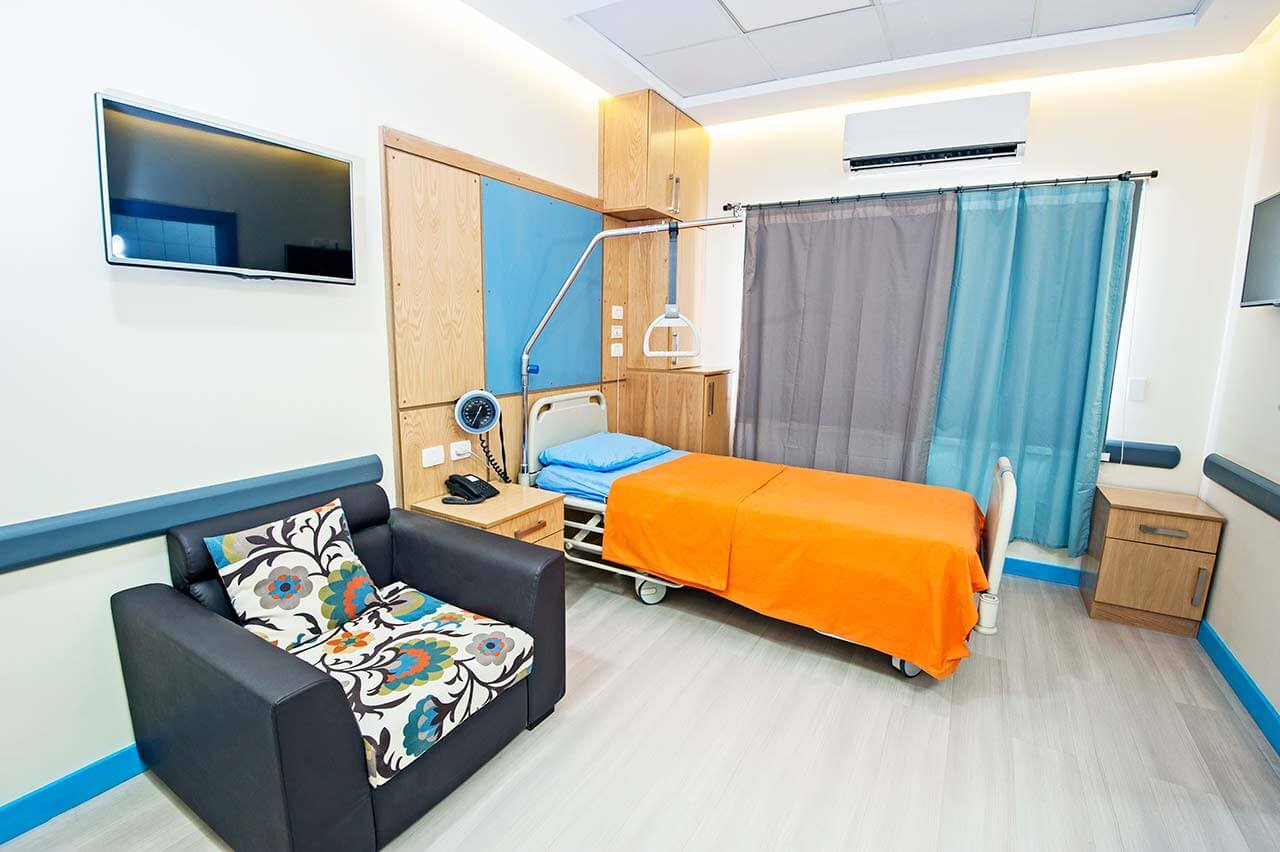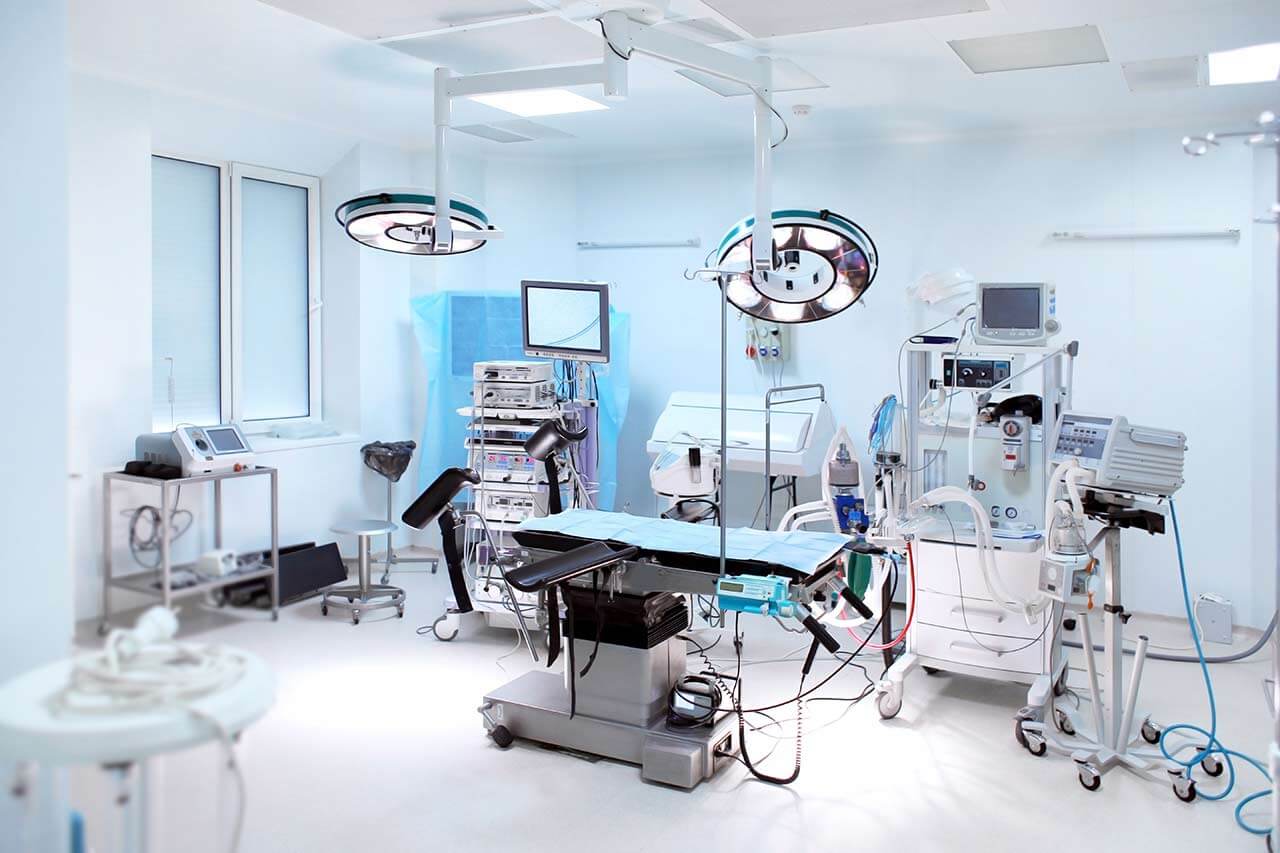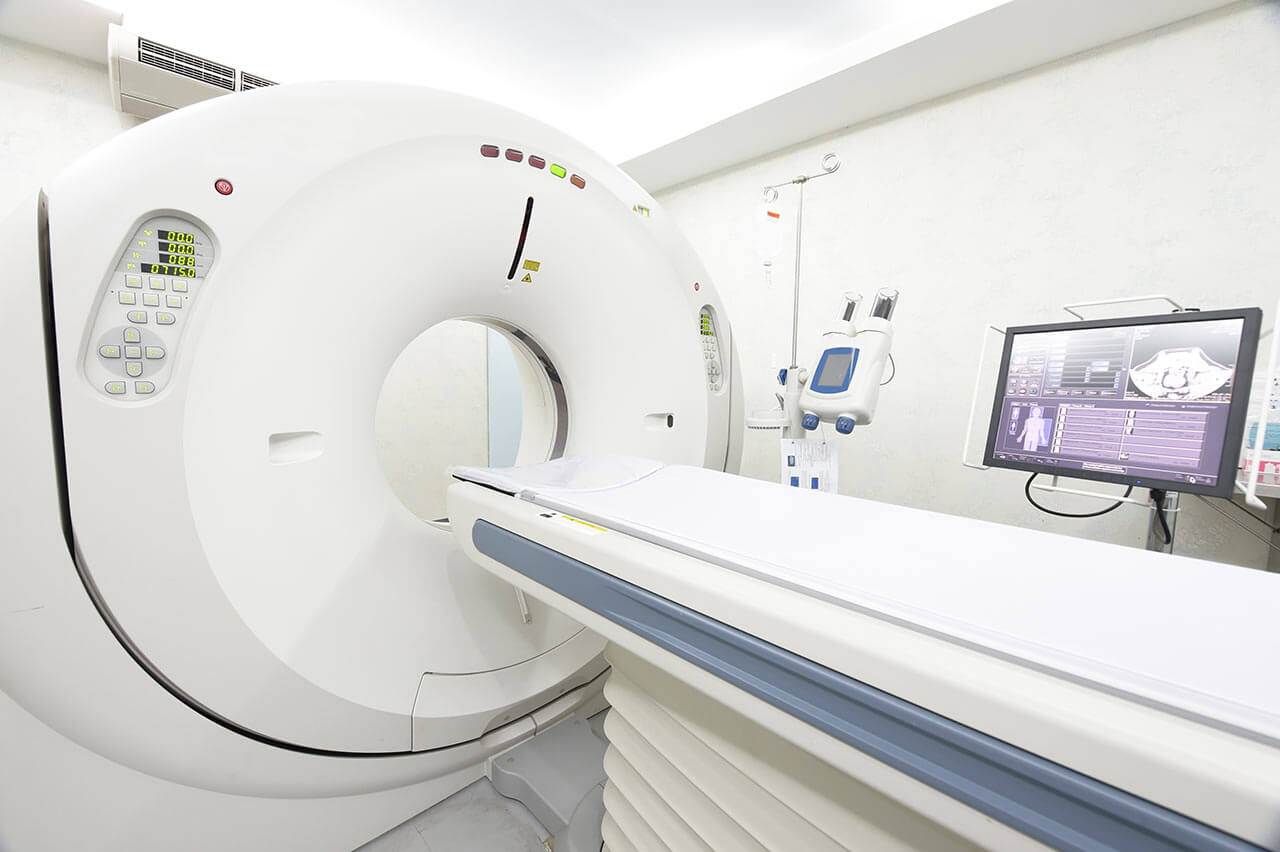
About the Department of Nuclear Medicine at University Hospital Carl Gustav Carus Dresden
The Department of Nuclear Medicine at the University Hospital Carl Gustav Carus Dresden offers the full range of diagnostics and treatment with therapeutic radionuclides. The department has been carrying out successful clinical activities for over 60 years, and therefore it has vast experience and outstanding achievements. The department has state-of-the-art medical equipment, thereby providing each patient with optimal medical care that meets the highest international standards. A special focus is placed on the treatment of benign and malignant thyroid diseases. The department cooperates closely with the specialized centers for breast cancer, prostate cancer, lung cancer and skin cancer. The specialists in the field of nuclear medicine also actively cooperate with doctors from the Comprehensive Cancer Center Dresden. Most diagnostic examinations are carried out on an outpatient basis, and therapeutic interventions most often take place in an 18-bed inpatient medical facility – one of the largest of this kind in Germany.
The Head Physician of the department is Prof. Dr. med. Jörg Kotzerke, who is deservedly proud of his successful clinical practice in nuclear medicine. The doctor has been working with methods of radioisotope diagnostics and treatment for more than 30 years, tirelessly demonstrating excellent results. His clinical activity is closely intertwined with his research work, reflected in more than 350 scientific publications, including in the international medical literature. Since 2007, Prof. Jörg Kotzerke has been a Board Member of the German Society of Nuclear Medicine (DGN), and as a Member of the European Association of Nuclear Medicine (EANM), he shares his knowledge and achievements with colleagues from other European countries.
A special focus is on the treatment of benign and malignant thyroid diseases. In addition, over the past two decades, the department's range of treatment has been significantly expanded. As of today, the focus of the department's doctors is on interventional radionuclide therapy for neuroendocrine tumors. Radioimmunotherapy is used for malignant lymphoma treatment.
The department has all modern devices to perform accurate diagnostics, including a gamma camera, PET-CT and PET-MRI scanners. The most common diagnostic tests include scintigraphy of the thyroid and parathyroid glands, lungs, brain, heart, and kidneys.
Radiation therapy for such thyroid diseases as thyrotoxicosis (thyroid hyperfunction) accounts for a large number of the therapeutic procedures. In addition, radiation therapy is highly effective for thyroid cancer treatment. The essence of radiation therapy is to take radioactive iodine in the form of a capsule or a special liquid, after which it is actively absorbed by the thyroid gland. The amount of radioactive iodine required for therapy is determined using an outpatient radioiodine test. The therapy is carried out on an inpatient basis only. As a rule, the hospitalization period does not exceed 3-5 days. The therapeutic effect is achieved 6-8 weeks after the procedure, and therefore the patient must be monitored by an endocrinologist and oncologist, as well as undergo follow-up examinations.
A particularly demanded therapeutic procedure is Lutetium-177 PSMA therapy in patients with metastatic prostate cancer. The isotope Lutetium-177 is injected to the patient intravenously, in the form of an infusion. Due to its specific properties, the PSMA ligand marked with Lutetium-177 targetedly binds to cancer cells and destroys them. As a rule, three procedures performed at an interval of 8 weeks are required to achieve the result. In addition to its high efficiency, Lutetium-177 PSMA therapy is well tolerated.
The department's diagnostic and therapeutic range of services includes:
| Diagnostics |
|
| Therapy |
|
| Other diagnostic and therapeutic options |
Curriculum vitae
University Education and Medical Practice
- 1977 - 1983 Study of Medicine at the Hannover Medical School.
- 1984 - 1988 Assistant Physician, Department of Nuclear Medicine and Special Biophysics, Hannover Medical School.
- 1985 Doctor of Medicine, Hannover Medical School.
- 1988 Board certification in Nuclear Medicine.
- 1989 - 1995 Senior Physician, Department of Nuclear Medicine and Special Biophysics, Hannover Medical School.
- 1991 Habilitation and Venia Legendi in Nuclear Medicine, Hannover Medical School.
- 1995 - 2002 Assistant Professor in Cardiovascular Nuclear Medicine, Department of Nuclear Medicine, Ulm University.
- 2000 - 2002 Managing Senior Physician, Department of Nuclear Medicine, University Hospital Ulm.
- Since 2002 Professor for Nuclear Medicine, Carl Gustav Carus Faculty of Medicines of the Dresden University of Technology and Medical Director of the Positron Emission Tomography Center at the Research Center Dresden-Rossendorf.
- Since 2002 Head of the Department of Nuclear Medicine at the University Hospital Carl Gustav Carus Dresden.
Main Clinical Focuses
- Diagnostics of tumors using positron emission tomography.
- Radionuclide therapy.
Memberships in Scientific Societies
- German Society of Nuclear Medicine (DGN).
- German Radiological Society (DRG).
- European Association of Nuclear Medicine (EANM).
- Society of Nuclear Medicine (SNM).
- German Cancer Society (DKG).
Photo: (с) depositphotos
Sources:



